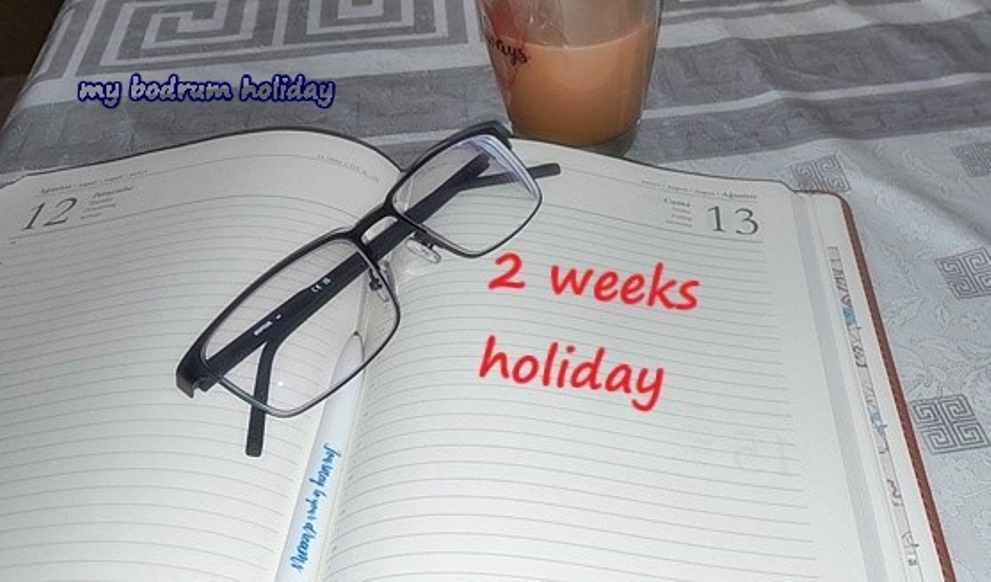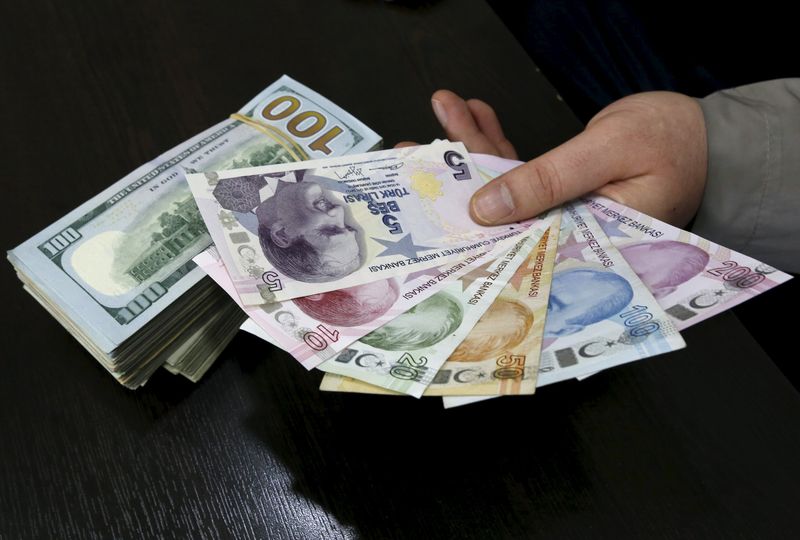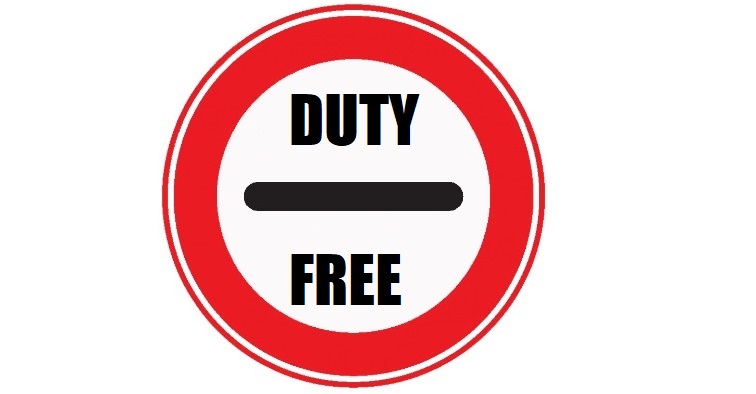HomeTravel informationBefore you go
Some general, worth knowing and interesting things

First of all, you need to decide where the trip should go. Where you can best unwind, relax, and recover from everyday life, you must decide for yourself – ideally democratically within the family.One should consider whether they would prefer to stay in a hotel or enjoy the benefits of the independence offered by a vacation home or campsite more
The question of how to get there must also be clarified: Is a car available, or will one rely on the train, bus, or plane? If there are children, it is often important to consider various local leisure activities. Ideally, a vacation should offer both experiences and action for the little ones, as well as peace and relaxation for the parents. Additionally, the budget should be roughly determined in advance. This includes considering the costs for accommodation and travel, as well as the prices for supplies on-site. less
All's well that ends well

No matter where you go, you should always save a special highlight for the end of the vacation, as this is what you'll most likely remember when looking back later. Vacation time is travel time, and of course, that comes with luggage.
more
That's often where the trouble starts.
At the airport, the suitcase or travel bag suddenly becomes too heavy,
or all the luggage just won't fit into the trunk, even after applying the Tetris principle.
This is especially common with vacation trips, where the suitcase is carefully packed at home to
avoid exceeding the weight limit and having to pay extra for a few kilos over. However, on the
return flight after the vacation, you suddenly have a few heavy souvenirs and purchases in your bag.
It's better to plan for this in advance and leave a bit of room on the scale for the outgoing journey.
less
Consider what is most important to you during your vacation when planning

- Would you like to relax?
- Do you want to do something good for your health?
- Or maybe enjoy nature!
- Wouldn't it be nice to pamper yourself?
- Being active and exercising would also be great,
- Variety, adventure, games, and fun,
- Socializing and flirting,
- Having enough time for your family,
- Getting to know other cultures and countries,
- Would you like to further your education?
- And so much more—whatever you think and want ...
The entry requirements for UK citizens traveling to Türkiye are as follows:

×![]()
1. Passport: UK citizens need to have a valid passport to travel to Türkiye. The passport must be valid for at least 6 months from the date of entry into Türkiye.
Below are the countries whose citizens can enter Türkiye with a national ID card: 1. Germany, 2. Belgium, 3. France, 4. Georgia, 5. Netherlands, 6. Spain, 7. Switzerland, 8. Italy, 9. Turkish Republic of Northern Cyprus, 10. Liechtenstein, 11. Luxembourg, 12. Malta, 13. Portugal, 14. Greece.
For travelers from other countries, a passport is required. more
2. Visa: British citizens are exempt from visas for tourist travel for 90 days in every 180 days.
3. Important Note: If a UK citizen plans to visit Türkiye for business purposes or for a long stay, they may need to apply for a traditional visa through the Turkish consulate.
4. Health Requirements: Türkiye generally does not require health documents such as vaccination certificates or negative PCR tests for travelers from low-risk countries like the UK. However, health-related requirements may change depending on the global situation, so it's a good idea to check the current health requirements before traveling.
5 Customs and Other Requirements: When entering Türkiye, certain items such as cash above a specific amount or restricted goods may need to be declared to customs.
Before traveling, it's always a good idea to check the official Turkish consulate website or the e-Visa portal for the most up-to-date information.
Since the application is for nationals of countries that require a visa to enter Türkiye, these individuals are not required to obtain a visa upon entry. Typically, their passports are not confiscated upon entry, but are taken by the officials responsible for entry and exit controls at the port, and a "Port City Permit Certificate" is issued to them. less
Below are the countries whose citizens can enter Türkiye with a national ID card: 1. Germany, 2. Belgium, 3. France, 4. Georgia, 5. Netherlands, 6. Spain, 7. Switzerland, 8. Italy, 9. Turkish Republic of Northern Cyprus, 10. Liechtenstein, 11. Luxembourg, 12. Malta, 13. Portugal, 14. Greece.
For travelers from other countries, a passport is required. more
2. Visa: British citizens are exempt from visas for tourist travel for 90 days in every 180 days.
3. Important Note: If a UK citizen plans to visit Türkiye for business purposes or for a long stay, they may need to apply for a traditional visa through the Turkish consulate.
4. Health Requirements: Türkiye generally does not require health documents such as vaccination certificates or negative PCR tests for travelers from low-risk countries like the UK. However, health-related requirements may change depending on the global situation, so it's a good idea to check the current health requirements before traveling.
5 Customs and Other Requirements: When entering Türkiye, certain items such as cash above a specific amount or restricted goods may need to be declared to customs.
Before traveling, it's always a good idea to check the official Turkish consulate website or the e-Visa portal for the most up-to-date information.
> Entering by ship <
This applies only at the port. Foreign nationals who enter by cruise ship or other means (yacht, boat, etc.) to visit the port city or surrounding provinces for tourism purposes are granted a visa-free entry permit by the Governor's Offices for a maximum period of 72 hours.Since the application is for nationals of countries that require a visa to enter Türkiye, these individuals are not required to obtain a visa upon entry. Typically, their passports are not confiscated upon entry, but are taken by the officials responsible for entry and exit controls at the port, and a "Port City Permit Certificate" is issued to them. less
Traveling by vehicle

Drivers need a passport to enter Türkiye.
For travelers driving to Türkiye, they also need a form issued by Turkish customs, which notes the date of departure. The green insurance card is only valid in the European part of Türkiye. For entry into the Asian part, it is recommended to have vehicle liability insurance, which can be obtained at the border from the Touring Club. more
Is it allowed to drive a car in Türkiye with your own driver's license?
Yes, you can drive in Türkiye with your own driver's license if it is valid and written in the Latin alphabet. If your driver's license is not in the Latin alphabet (e.g., if it is in Cyrillic or Arabic), it is recommended to have an international driver's permit (IDP) along with your national license.Speed limits:
Applicable speed limits
| Vehicle type | In local area | Outside the town | Double-lane roads | Highways |
|---|---|---|---|---|
| Car - Passenger car | 50 km/h | 90 km/h | 110 km/h | 130 km/h - 140 km/h |
| Bus | 50 km/h | 80 km/h | 90 km/h | 100 km/h |
| Transporter | 50 km/h | 80 km/h | 85 km/h | 95 km/h |
| Van | 50 km/h | 85 km/h | 100 km/h | 110 km/h |
| TRUCK | 50 km/h | 80 km/h | 85 km/h | 90 km/h |
| Scooter - Motorcycle | 50 km/h | 70 km/h - 80 km/h | 80 km/h - 90 km/h | 80 km/h -100 km/h |
Other Rules! Radar detectors are prohibited if they are in an operational state. High fines may apply for non-compliance.
- Passengers in the car sitting in the front seat must wear seat belts.
- Cyclists are required to wear helmets.
- There is no obligation to use headlights during the day.
- The use of mobile phones while driving is prohibited unless a hands-free device is used.
Tolls/Vignettes
In Türkiye, a toll must be paid on highways based on the distance traveled. The use of the three Bosphorus bridges (only from Europe to Asia) is also subject to a fee. The toll is paid electronically, and it is recommended for tourists to use the so-called HGS card or HGS vignette. These can be purchased at any Turkish post office or highway rest areas and must be pre-loaded with a certain amount depending on the vehicle category. When passing a toll station, the required amount will be deducted.
Traveling to Türkiye by Car
Traveling to Türkiye by your own vehicle is only worthwhile for long-term holidaymakers and takes at least three days. The route through Hungary, Romania, and Bulgaria, or via the so-called "Autoput" through Slovenia, Croatia, Bosnia, Serbia, and Bulgaria to Istanbul and further into Anatolia is not recommended due to poor infrastructure and regional security concerns. Therefore, individual travelers coming with their own car, motorhome, or motorcycle are particularly advised to consider the Italian-Turkish ferry connections such as Brindisi – Çeşme (about 30 hours) and Venice / Ancona – Çeşme / Izmir (about 40 hours), which are regularly operated by Marmaralines, Turkish Maritime, and Med Link. Further information can be obtained from major travel agencies. During peak season, additional ferries operate between Ancona or Bari and the Turkish Aegean coast. Alternatively, ferries could be combined, e.g., Italy – Patras, Piraeus – Chios, Chios – Çeşme. From April to November, a car train runs from Villach to Edirne.
TRAFFIC RULES
As a self-driver on a road trip in Türkiye, it’s important to be prepared for unexpected traffic situations, especially the sudden appearance of livestock on rural roads. On narrow mountain roads and blind curves, it is common practice to announce your arrival by honking your horn. Turkish drivers are generally more responsive to auditory signals than visual ones.Defensive driving should, therefore, be a given during a road trip in Türkiye.
The condition of the roads in the tourist areas along the Mediterranean coast, as well as the major connecting roads between cities, is generally good. However, roads leading to remote archaeological sites in the coastal region may involve bumpy or even unpaved roads and tracks.
Night driving should be avoided as much as possible, especially in rural areas, where other vehicles may be insufficiently lit (driving with parking lights) or not lit at all (horse-drawn or donkey carts).
In the event of an accident during your road trip in Türkiye, always call the police (Tel. 155) or the gendarmerie (Tel. 156) (military police) and ensure an accident report is made.
Emergency numbers nationwide: Police Phone 155, Emergency Rescue Phone 112. less
Money/Credit Cards/Payment

The national currency is the Turkish Lira (TL). With a debit card (Girocard), you can easily withdraw money from many ATMs in Bodrum; however, Turkish banks now mostly charge a fee that is not reimbursed by banks.
more Credit cards are also accepted as a method of payment. In some cases, you may be asked to provide your passport or ID card.
With the PIN, you can also withdraw cash from banks or designated ATMs using your credit card.
The ATMs now also offer the option of using UK.
Alternatively, you can pay your bill in Euros or US Dollars. In some places, British Pounds are also accepted. However, please remember that there are not many Euro or Cent coins in Türkiye, so prices are usually rounded. Sometimes, if coins are unavailable, the change may be given in Turkish Lira (TL).
Important: Since more local tourists are visiting Bodrum, some areas do not accept dollars, euros, or pounds. less The most commonly used public transportation in Türkiye is the bus, and its urban bus stations can be compared in terms
of facilities to European railway stations. There are several bus companies. In large cities, it is not always necessary to go to
the bus station (tr. Otogar or Garaj), which is usually located far outside the city center, as companies have central city offices.
Here, you can buy your ticket, and from there, you will be taken to the bus free of charge. For Bodrum,
you can visit the website Bodrum Intercity Bus Terminal online.
The most commonly used public transportation in Türkiye is the bus, and its urban bus stations can be compared in terms
of facilities to European railway stations. There are several bus companies. In large cities, it is not always necessary to go to
the bus station (tr. Otogar or Garaj), which is usually located far outside the city center, as companies have central city offices.
Here, you can buy your ticket, and from there, you will be taken to the bus free of charge. For Bodrum,
you can visit the website Bodrum Intercity Bus Terminal online.
 All taxis are yellow.
All taxis are yellow.
Taxis are often the only means of transport in Türkiye for remote destinations (e.g., ruined cities in the interior). They have a taximeter, which must be working; for longer journeys in rural areas, taxi cooperatives often set fixed prices, which are usually posted at the central taxi pick-up point. If neither is available, the price must be negotiated before the journey begins. Taxis in Türkiye are not always the cheapest means of transport, especially in Bodrum. If several people share the fare, then it is worthwhile.
 For Bringing Pets
For Bringing Pets
The import of up to two pets (dogs, cats, ferrets) per traveler is generally allowed.
Each animal must be clearly identified by a tattoo or microchip.
A veterinary certificate documenting the rabies vaccination, which must be at least 15 days prior to entry but not older than 12 months, must be provided. For dogs, certain breeds (e.g., fighting dogs) are prohibited, and they must be vaccinated not only against rabies but also against parvovirus, hepatitis, and leptospirosis.
more Credit cards are also accepted as a method of payment. In some cases, you may be asked to provide your passport or ID card.
With the PIN, you can also withdraw cash from banks or designated ATMs using your credit card.
The ATMs now also offer the option of using UK.
Alternatively, you can pay your bill in Euros or US Dollars. In some places, British Pounds are also accepted. However, please remember that there are not many Euro or Cent coins in Türkiye, so prices are usually rounded. Sometimes, if coins are unavailable, the change may be given in Turkish Lira (TL).
Important: Since more local tourists are visiting Bodrum, some areas do not accept dollars, euros, or pounds. less
Long-distance buses - scheduled buses
 The most commonly used public transportation in Türkiye is the bus, and its urban bus stations can be compared in terms
of facilities to European railway stations. There are several bus companies. In large cities, it is not always necessary to go to
the bus station (tr. Otogar or Garaj), which is usually located far outside the city center, as companies have central city offices.
Here, you can buy your ticket, and from there, you will be taken to the bus free of charge. For Bodrum,
you can visit the website Bodrum Intercity Bus Terminal online.
The most commonly used public transportation in Türkiye is the bus, and its urban bus stations can be compared in terms
of facilities to European railway stations. There are several bus companies. In large cities, it is not always necessary to go to
the bus station (tr. Otogar or Garaj), which is usually located far outside the city center, as companies have central city offices.
Here, you can buy your ticket, and from there, you will be taken to the bus free of charge. For Bodrum,
you can visit the website Bodrum Intercity Bus Terminal online.
Taxi
In Türkiye it is written as TAKSI.
 All taxis are yellow.
All taxis are yellow.Taxis are often the only means of transport in Türkiye for remote destinations (e.g., ruined cities in the interior). They have a taximeter, which must be working; for longer journeys in rural areas, taxi cooperatives often set fixed prices, which are usually posted at the central taxi pick-up point. If neither is available, the price must be negotiated before the journey begins. Taxis in Türkiye are not always the cheapest means of transport, especially in Bodrum. If several people share the fare, then it is worthwhile.
Duty-free

Consumer Goods:
Luggage for personal use is not subject to any restrictions but must be re-exported. Gifts with a value of up to 300 Euros may be imported duty-free.
Food & Consumables:
- 400 cigarettes; 100 cigarillos (max. 3 g each) or 50 cigars; 250 g of cigarette tobacco (including 200 sheets of cigarette paper); 250 g of pipe tobacco; (all for persons aged 18 and over).
- 1 liter of alcoholic beverages over 22% ABV; 1 liter of alcoholic beverages up to 22% ABV. (all for persons aged 18 and over).
more - Perfume, Eau de Cologne, lavender water, essence, or lotions (max. 600 ml in total), as well as 5 pieces of skin care products and toiletries.
- 1 kg of coffee; 1 kg of instant coffee; 1 kg of tea; 1 kg of chocolate; 1 kg of sweets.
Cash: There are no restrictions on the import of foreign currency into Türkiye.
Other Goods: The import of weapons and cutting tools is prohibited without special permission
- A receipt must be provided for a new carpet!
- Minerals and fossils may only be exported with permission from the Institute for Mining and Research!
- No milk or meat products may be exported. less
Luggage for personal use is not subject to any restrictions but must be re-exported. Gifts with a value of up to 300 Euros may be imported duty-free.
Food & Consumables:
- 400 cigarettes; 100 cigarillos (max. 3 g each) or 50 cigars; 250 g of cigarette tobacco (including 200 sheets of cigarette paper); 250 g of pipe tobacco; (all for persons aged 18 and over).
- 1 liter of alcoholic beverages over 22% ABV; 1 liter of alcoholic beverages up to 22% ABV. (all for persons aged 18 and over).
more - Perfume, Eau de Cologne, lavender water, essence, or lotions (max. 600 ml in total), as well as 5 pieces of skin care products and toiletries.
- 1 kg of coffee; 1 kg of instant coffee; 1 kg of tea; 1 kg of chocolate; 1 kg of sweets.
Cash: There are no restrictions on the import of foreign currency into Türkiye.
Other Goods: The import of weapons and cutting tools is prohibited without special permission
Customs Regulations for Export:
- It is forbidden to export antiques!- A receipt must be provided for a new carpet!
- Minerals and fossils may only be exported with permission from the Institute for Mining and Research!
- No milk or meat products may be exported. less
Pets
 For Bringing Pets
For Bringing PetsThe import of up to two pets (dogs, cats, ferrets) per traveler is generally allowed.
Each animal must be clearly identified by a tattoo or microchip.
A veterinary certificate documenting the rabies vaccination, which must be at least 15 days prior to entry but not older than 12 months, must be provided. For dogs, certain breeds (e.g., fighting dogs) are prohibited, and they must be vaccinated not only against rabies but also against parvovirus, hepatitis, and leptospirosis.